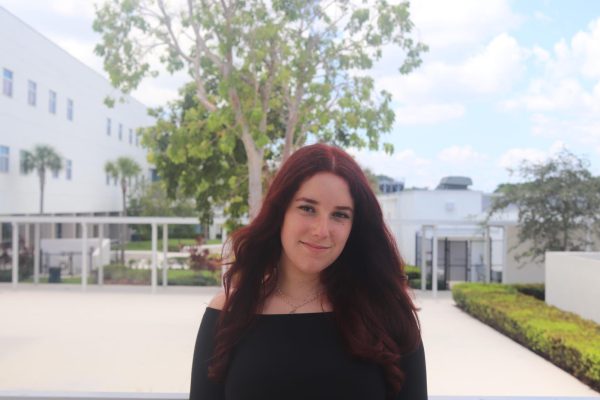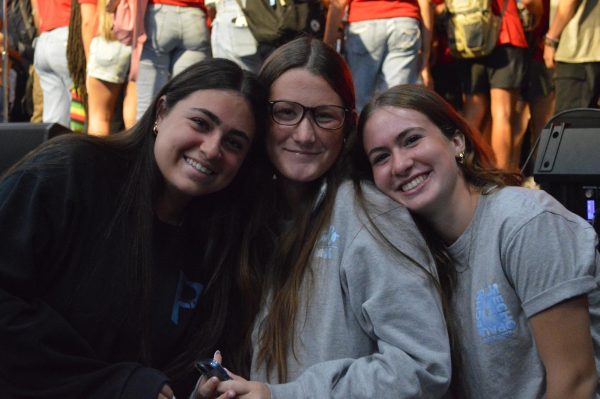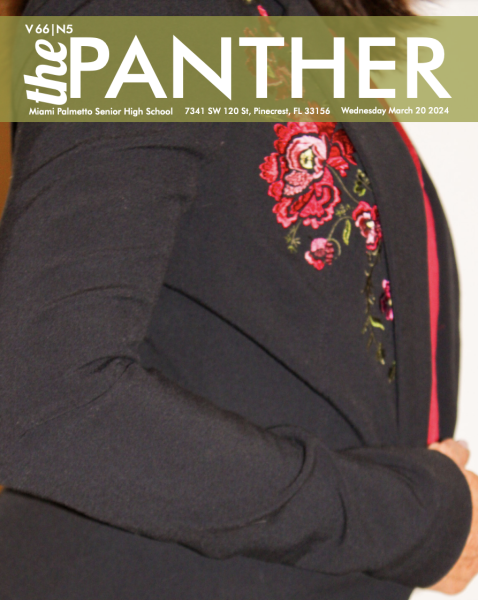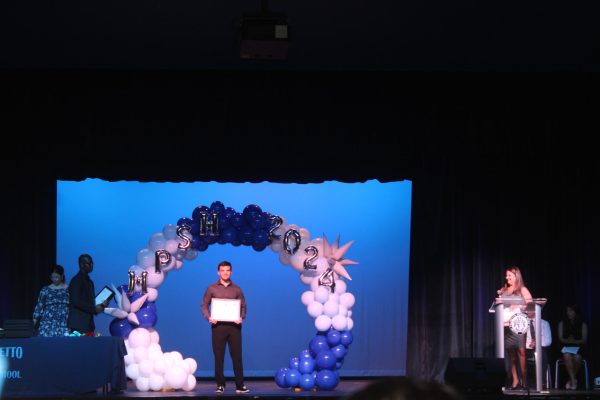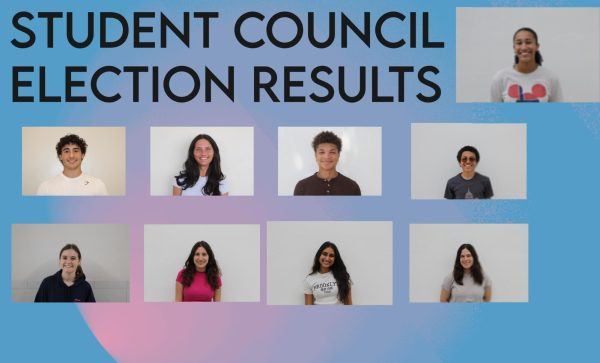Rhythm and Blues: A Profile on Palmetto’s Jazz Band
April 29, 2023
Music flows in synchronized, articulated chords where the rhythms of blues and bebop bounce off of instrumental tunes. Every fifth period in room 7104, Miami Palmetto Senior High’s Jazz Band promotes creativity and self-expression through musicality both within the classroom and around the school, all while nurturing essential musical skills and teamwork.
At the start of every class, students in the jazz band view clips of jazz performances to help initiate conversation amongst one another about music, such as how these videos made them feel and what they liked about a given performance.
“Usually Ms. Serrano starts the day off by showing us…two videos…and they will show us a video and we’ll talk about the music and talk about what we liked about it and how it made us feel and what we liked about the solos because the good thing about jazz [is] the soloing — you get to express yourself,” MPSH senior jazz band vocalist and percussionist Manny Navarro said.
Following video performances and conversation, a day in jazz band consists of practicing either former pieces for upcoming shows or brand-new pieces.
“Sometimes if we have a show coming up, we’ll go right in to start practicing or music to make sure we have it down. If not, there’s a book called the ‘Real Book,’ and usually we get a lot of our stuff from there. So [Ms. Serrano] just print out a lead sheet, and she’ll hand [it] out to the class and we’ll just practice new stuff — like every day we’ll do a new standard. And then we’ll go back and we’ll do it again to make sure we have it down. So in the case that we do want to do a show,” Navarro said. “Usually we’re more focused on practicing stuff with shows. We have the spring concert coming up. So we’ve been focusing more on working on that.”
For MPSH senior and jazz band tenor saxophonist Zachary Su, jazz band serves as a cooperative and inviting environment that deviates from the competitive nature of other classes.
“I would say in other classes, it feels like you’re kind of competing with other people to try to get better grades and then beat them at tests. But jazz is very cooperative because the way you play with other people, the way you interact with them — it all reflects on your performance,” Su said.
Navarro appreciates the freedom of expression that being in a jazz band provides. As jazz serves as a form of art, the artistry that couples a good performance proves similar to no other, and thus, allowing him to explore his creative side outside of the traditional classroom environment.
“I always look forward to going into [jazz band]. Because it’s not a class where you get stressed out…you get to express yourself and your soul. And I think that’s really important because other classes, the core classes, they just teach you stuff that’s in a book, and you can’t really change the rules. But in jazz band, you can just do whatever you want, to a certain degree, but you can express yourself and let your imagination and see how different notes work together,” Navarro said. “[You can] use pieces from other songs and put it into your solo for another song. And just see how it all works out. And it’s great to be playing or singing and you’re just solo and all your classmates. They’re like, ‘wow, that was a good lick.’ ‘That was good.’ ‘That’s a good solo’…and I don’t really have to worry about if I make a mistake…like, ‘oh, I played a flat when I should have played a sharp. There’s not really any mistakes in jazz. You can always find a way to build something sweet and melodic or something harmonic out of a mistake. And in jazz, it all sounds good, because it’s something that you produced on your own instead of just reading music.”
Alongside the freedom of creativity and cooperation offered to MPSH’s rising musicians, jazz band allows musicians to perform solos and write their own music scores — a favored part of the class for Su.
“My favorite part would have to be solos where they get [their] music playing and we are able to freely create something that’s not directly written on the music,” Su said.
On the other hand, Navarro’s favorite aspect of the class is his ability to express himself vocally.
“Anytime we do a song with vocals, sometimes we will do [it with] instrumental pieces only, but instead of just doing percussion with bongos, congas, shakers, anything that actually gets a sing and vocalize on, I think that’s my favorite part,” Navarro said.
Inside the classroom, musicians develop technical skills on their instruments. Outside of the classroom, some students, like Su, go the extra mile to make use of their jazz skills and promote music to surrounding communities.
“I’m with a non-school associated program; we meet on Monday nights [where] we rehearse and then sometimes we play concerts. We also sometimes go play [on] the radio show, [WDNA 98.5]. It’s pretty fun. For that program, I have to write music, which is very challenging because writing music is not for everyone,” Su said.
For students looking to be future musicians and join Jazz Band next year, Su recommends that students go into the class with an open mind.
“Don’t think of it as a normal class. It’s much different. Moreover, I would say it’s very fulfilling if you’re able to get into the music and apply yourself,” Su said.
Furthermore, Navarro advises that students not be shy to go into the class and to take it as an opportunity to express themselves, and their love and talent for music.
“I would tell them to not be shy about [going into Jazz Band] and how they play…And feel free to express yourself, and don’t worry really if you miss a key or miss a note, because in the end, you can’t really make a mistake,” Navarro said.



